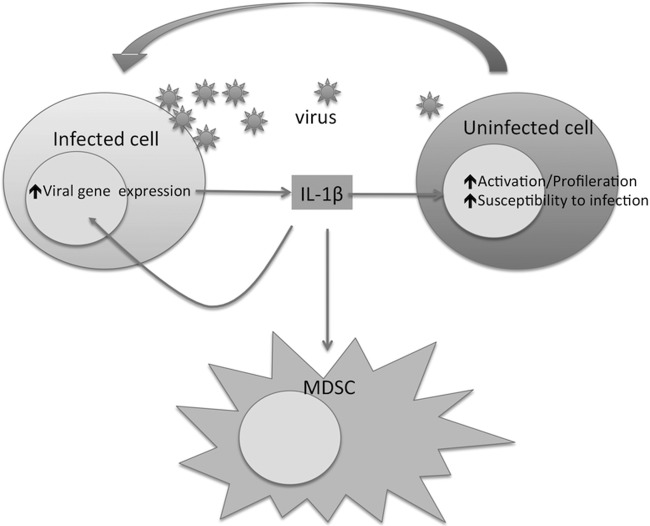FIG 7.
Possible roles for IL-1β in retroviral infection. IL-1β secreted by cells during, or in response to, retroviral infection engages IL-1R1 either on neighboring cells or on the infected cells themselves. This interaction activates transcriptional pathways that can enhance viral gene expression, promote cellular proliferation, and/or increase susceptibility to infection. The uninfected cells thus become infected more easily and express viral genes to a higher level. This then initiates further rounds of IL-1β secretion, resulting in an inflammatory positive feedback loop. IL-1β also promotes increased abundance of myeloid-derived suppressor cells (MDSCs) that may negatively regulate immune responses.

